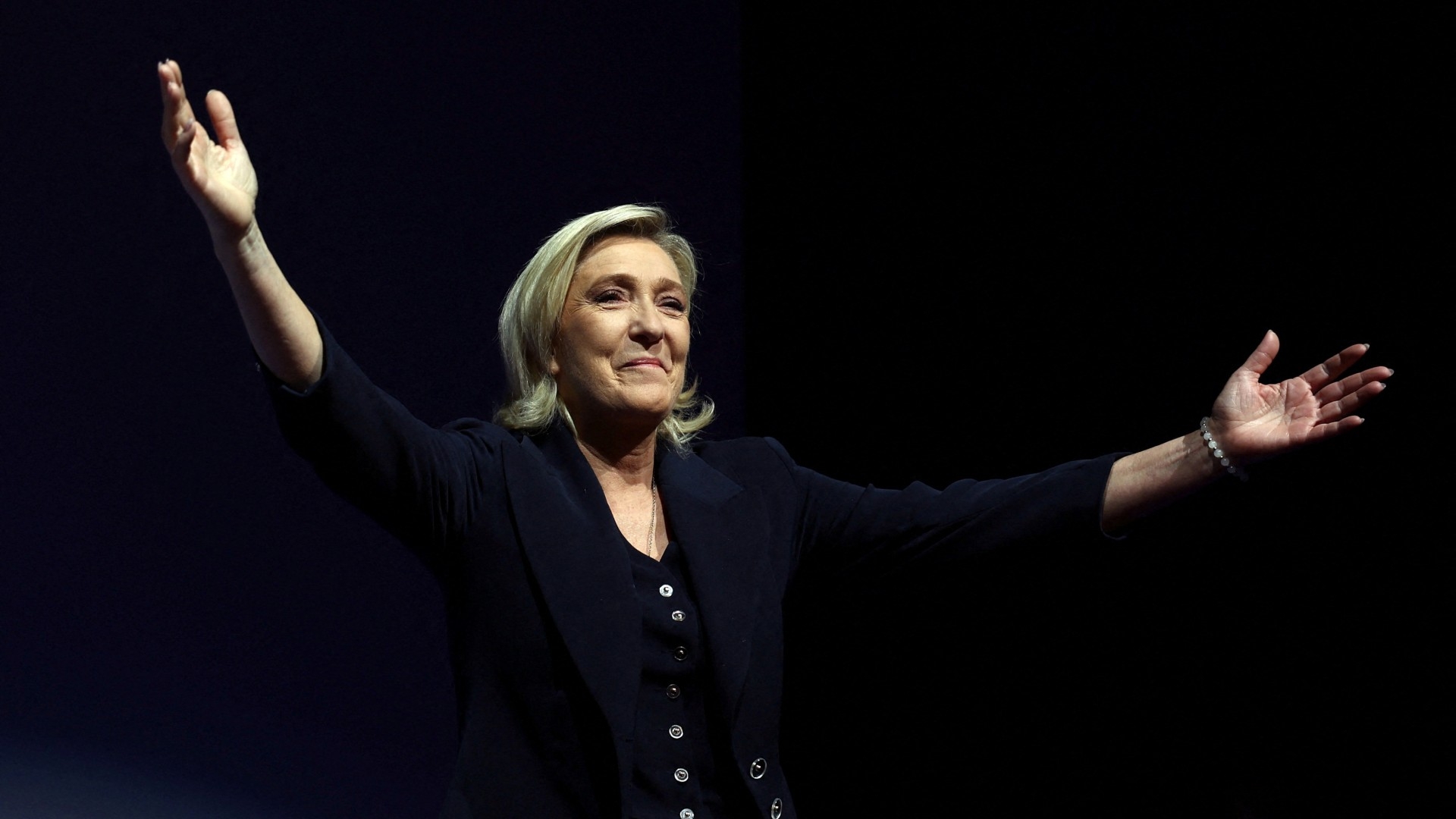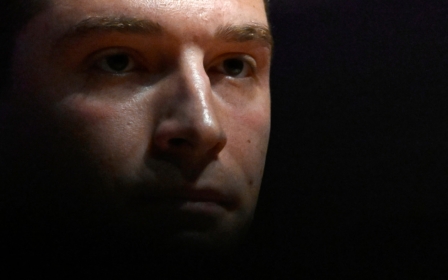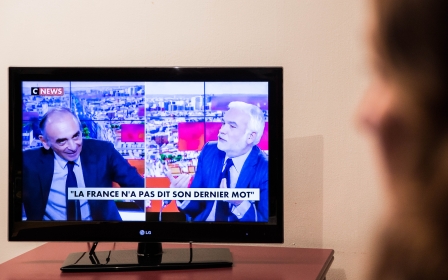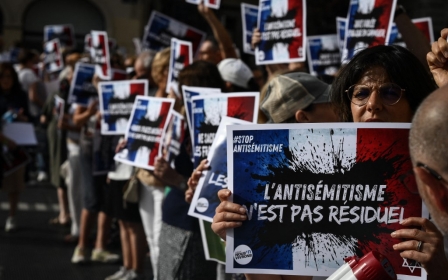France elections: Muslims fear Islamophobic 'apartheid' after far-right wins

Thousands of French citizens gathered in Paris on Sunday evening to protest against the far-right National Rally (RN), the party that won the highest share of votes in the country’s first round of legislative elections earlier that day.
The RN, led by 28-year-old Jordan Bardella and veteran ultraconservative Marine Le Pen, ran a campaign with an anti-immigration policy platform, which has been criticised and deemed discriminatory and Islamophobic.
Despite those fierce criticisms, the National Rally won 33.14 percent of the votes, followed by the New Popular Front, an alliance of left-wing parties, on 27.9 percent. The centrist alliance of President Emmanuel Macron came third, with 20.7 percent.
The country faces a second round of voting on Sunday to settle seats where there was no outright winner.
Before the election, figures from across French society, but particularly Muslims and those from an immigrant background, expressed concern about the future. As the RN's successes rolled in, those concerns only heightened.
New MEE newsletter: Jerusalem Dispatch
Sign up to get the latest insights and analysis on Israel-Palestine, alongside Turkey Unpacked and other MEE newsletters
There is a chance that the RN will be able to form a majority government alone following the second round, and pursue its policy of “national preference” - the concept of prioritising non-migrant French communities.
In Paris, Muslims were among those protesting the National Rally's gains following the election.
“From what I know, if the National Rally comes into power, many Islamophobic bills will be passed,” said Zayneb, a student.
Referencing Le Pen’s propositions for a ban of hijabs in public spaces, Zayneb feared a National Rally victory would make life “very difficult for veiled women” such as herself.
“We feel that we are targeted because we are veiled,” she told Middle East Eye. “We feel that we are bothering people, even though we are just living our lives like all other citizens. I was born in France, and I would have never thought that Islam would become such a problem here.”
Maria, a lawyer, concurred, dismissing hopes that banning the hijab “would be impossible because of the legal mechanisms we have in France”.
Rather, she pointed to existing incursions upon the religious freedoms of Muslims in France as a sign of things to come: “The veil has already been forbidden in schools, in some workplaces and the niqab is also forbidden in public spaces, so in a country of fascists, they will be able to do everything they want.”
Maria placed responsibility for the election results on the current government’s rightward shift.
'If the National Rally reaches the majority, it is undeniable: we will have to leave'
- Omeyma, student
“I am not that surprised by the results,” she told MEE. “For many years, we have seen that [the National Rally] is growing, and that the current government and current president did everything to lead to such a result, because his own policies are, in my opinion, extreme-right policies that have promoted Islamophobia and xenophobia."
Earlier this year, Macron faced party rebellion and ministerial resignations after he passed a controversial bill aimed at toughening immigration measures, with the jubilant endorsement of Le Pen and the National Rally.
“The situation is very serious,” Maria said. “An apartheid is being created.”
Omeyma, also a student, expressed conflicted emotions.
“This is a country that we love - we were born here, and it’s very difficult to tell ourselves that despite having grown up here, we don’t really have a choice to stay here,” she said.
But, she added, considering leaving France is a reality for many French Muslims today.
“I am really thinking about leaving, because if the National Rally reaches the majority, it is undeniable: we will have to leave. We won’t have that many choices. To live in a world in which racism has a grip on our society is unacceptable.”
Middle East Eye delivers independent and unrivalled coverage and analysis of the Middle East, North Africa and beyond. To learn more about republishing this content and the associated fees, please fill out this form. More about MEE can be found here.




